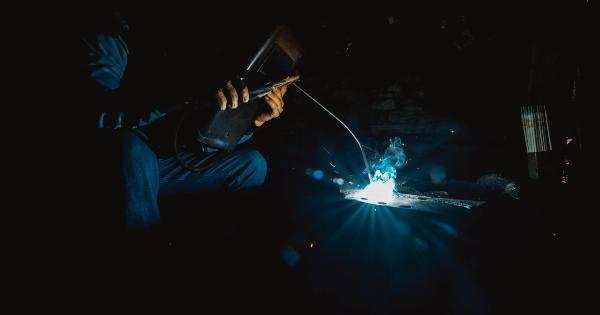Insomnia, tachypnea, and eczema are three separate symptoms that may seem unrelated, but they can actually be interconnected.
Insomnia is the inability to fall or stay asleep, tachypnea is rapid breathing, and eczema is a skin disorder characterized by itchy and inflamed patches on the skin. Despite being seemingly unrelated, the three can be indicative of an underlying problem.
What is Insomnia?
Insomnia can be a standalone condition or a symptom of underlying medical conditions.
It is often characterized by difficulty in falling asleep, waking up during the night and struggling to fall back asleep, waking up too early, feeling tired upon waking up, and feeling unrested. Insomnia could also lead to mood swings, irritability, and difficulty concentrating, which can affect people’s performances at work and school.
What is Tachypnea?
Tachypnea refers to rapid breathing due to various physiological and psychological reasons. Typically, people breathe between 12 and 20 times per minute, but when the rate exceeds this range, it becomes tachypnea.
It is usually caused by lung conditions, cardiac disorders, metabolic acidosis, anxiety, and stress.
What is Eczema?
Eczema is a skin condition characterized by itchy and inflamed patches of skin. People with eczema usually experience red, scaly, and dry patches of skin, and it often leads to scratching and skin damage.
It is most common in children and adolescents, and the symptoms usually disappear over time.
The Connection Between Insomnia, Tachypnea, and Eczema
It is not uncommon for people with eczema to experience insomnia and tachypnea. The itching, redness, and discomfort often cause people with eczema to struggle with sleep, and 40-60% of children with eczema experience sleep disruption.
This could lead to daytime fatigue and mood swings, which can further exacerbate the symptoms of tachypnea.
Similarly, tachypnea can lead to difficulty sleeping and insomnia. Rapid breathing can cause anxiety, which could lead to difficulty relaxing and falling asleep.
Moreover, tachypnea could also impact the quality of sleep, leading to daytime fatigue and exhaustion.
While these three symptoms seemingly have no connection, they could also be indicative of underlying medical conditions such as obstructive sleep apnea (OSA).
OSA is a condition where breathing stops abruptly during sleep, leading to brief awakenings that impact the overall quality of sleep. Similarly, anxiety, stress, and depression could cause insomnia, tachypnea, and eczema. Therefore, it is crucial to assess patients with these symptoms collectively to determine if there is an underlying medical condition.
Treatment Options
Insomnia, tachypnea, and eczema treatments vary based on the underlying cause. In the case of OSA, physicians may prescribe continuous positive airway pressure (CPAP) and related therapies to address respiratory problems.
They may also suggest cognitive-behavioral therapy (CBT) to address underlying psychological factors that may cause anxiety-related insomnia.
Eczema treatments usually revolve around moisturizing the skin and reducing inflammation. Physicians may prescribe anti-inflammatory creams and ointments to relieve itching and redness.
They may also suggest phototherapy and steroid creams to minimize inflammation.
Tachypnea treatment largely depends on the underlying medical condition. In the case of asthma, physicians may prescribe inhalers and nebulizers to manage ongoing respiratory problems.
They may also prescribe beta blockers or calcium channel blockers to control rapid heart rates associated with tachycardia.
Final Thoughts
Insomnia, tachypnea, and eczema are three common symptoms that may seem unrelated, but they could be indicative of underlying medical conditions.
Identifying the underlying problem and providing appropriate treatment could alleviate these symptoms and enable people to lead normal lives. Consult a qualified physician if you experience any of these symptoms.





























